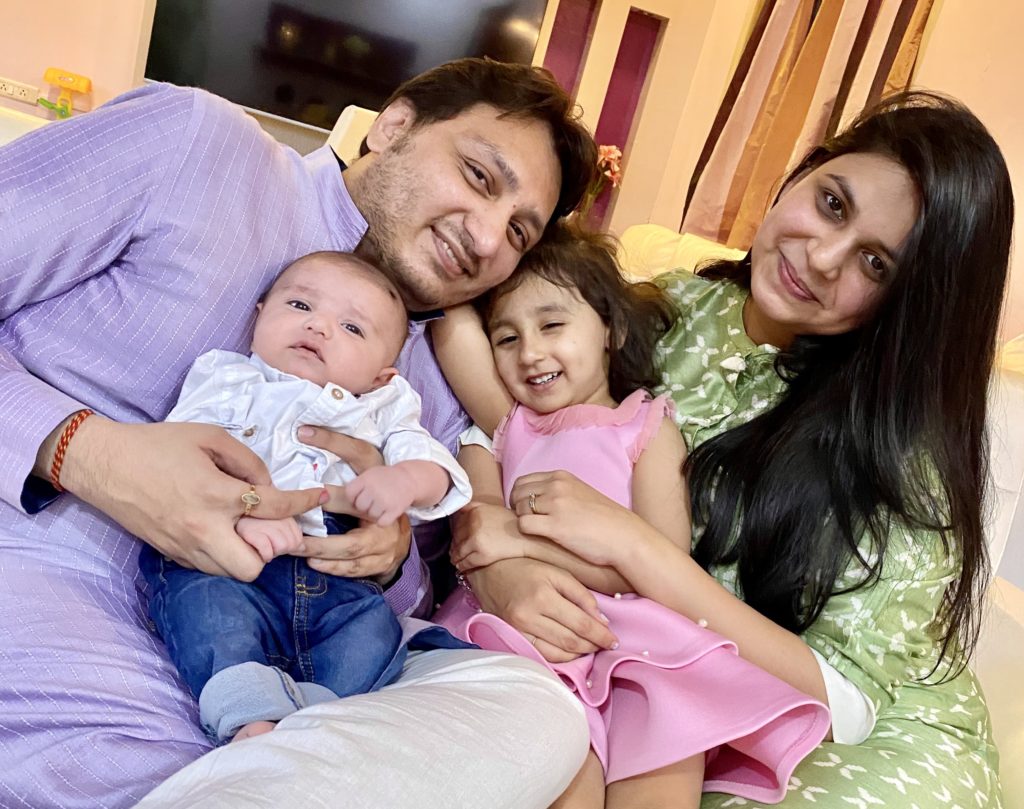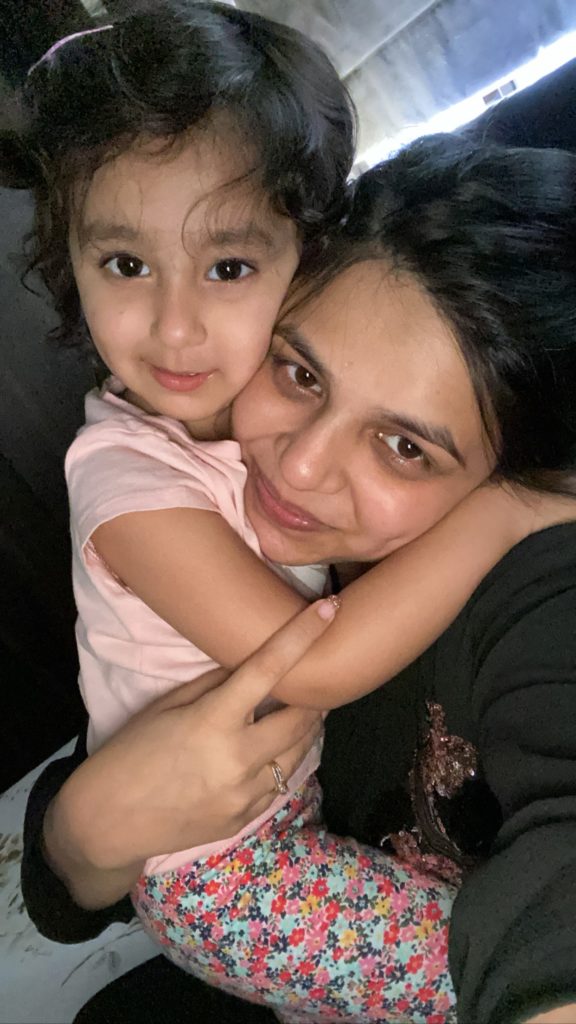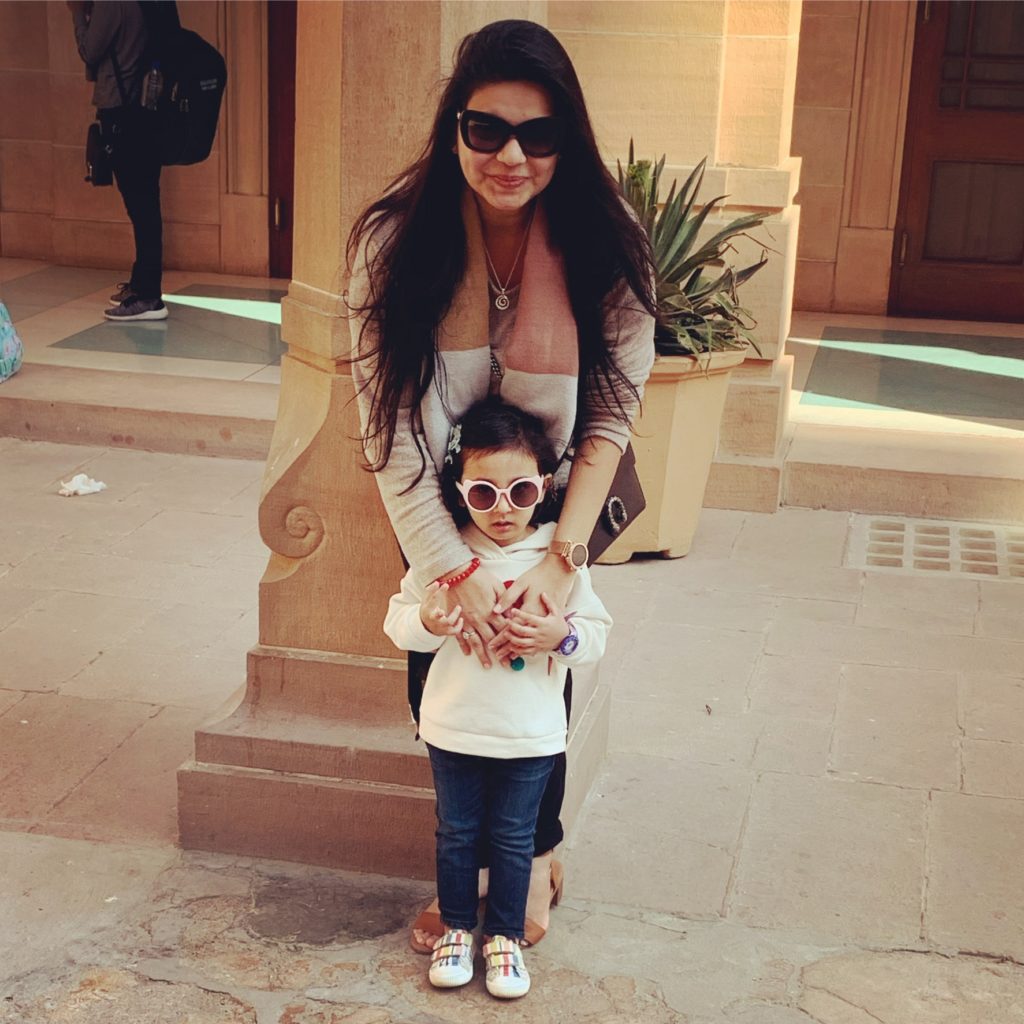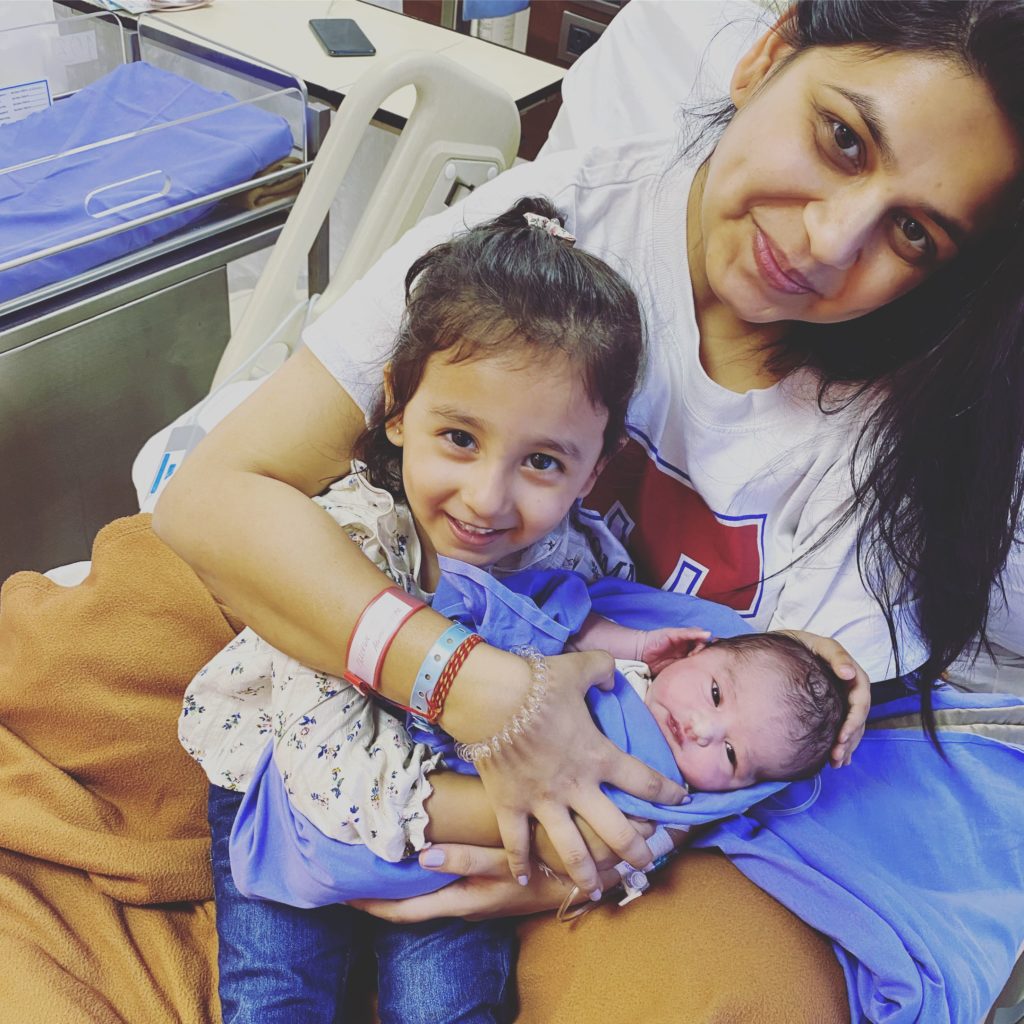For the second installment of the #HERstory Global Initiative, we spoke with Hyperemesis Gravidarum (HG) survivor Saloni, who is currently residing in India. She shines some light on her personal HG journey, which she is still undergoing to this day as she continues to recover. Because she believes that there is little HG awareness in her country, she is eager to share her story so more women know about the severity of the disease.
Below is a transcript of our interview that has been slightly modified as appropriate.

HER: When were you first diagnosed with HG?
I was diagnosed with HG when I was pregnant the second time. When I got a positive pregnancy test, I had already started feeling sick. I had a dull abdominal ache, and we couldn’t see the baby growing and feared it to be an ectopic pregnancy. The pregnancy was considered viable only towards the end of first trimester. Initially, my symptoms looked like a kidney or a liver disease, and I constantly felt that I wasn’t pregnant. I had no idea about HG, since I had no such symptoms during my first pregnancy.
HER: What were your initial symptoms like?
What felt like extreme morning sickness was diagnosed as hyperemesis gravidarum (HG) when I was five months pregnant. I was vomiting after every meal, and I was literally feeling lifeless. I had no energy left, and by the time I was diagnosed with HG, I had lost 5-6 kilograms. Fortunately, I could retain water and biscuits and that’s what I literally survived on along with coffees and sprite. I was skipping meals during the first half of my pregnancy and was in bed most of the time. A trip to a grocery store would mean being in the bed for the next 3-4 days.
HER: Had you heard of Hyperemesis Gravidarum before your diagnosis?
Saloni: No! Never. I had never heard of Hyperemesis Gravidarum. In fact, it felt like a lot of health professionals here in India weren’t aware of such a condition. A physician actually told me that such a thing never happens and said HG is very common during pregnancy. Even the nurses were ignorant of this condition and did not take it seriously. Luckily, I had a good experience with my gynaecologist who was supportive and only gave me positivity.
HER: Did you tell any friends or family about your diagnosis? What was your support network like during that time?

Saloni: When so many experienced professionals weren’t aware of HG, I had hardly any expectations left for friends and family. My family knew I was suffering but didn’t understand the extent of it, partly because I kept a strong face throughout. A lot of people got to know about my pregnancy towards the end of second trimester. I started looking pregnant only during the 8th month of pregnancy. Due to HG, I preferred staying in bed most of the time and avoided talking to a lot of people. During the initial days I even avoided a lot of calls from people who wanted to congratulate me. People around did not really understand what I was actually going through. They advised me to follow home remedies, like putting ginger and cardamom in mouth or gulp ice water. I had tried everything in my capacity and felt worse knowing that nothing worked. And it was all the more difficult because my husband was traveling for business purposes.
HER: What did your HG treatment consist of?
Saloni: I tried so many antiemetics by the time I was 6 months pregnant. And people just gave me advice, and there were some people who even said, “oh, this doesn’t happen, just stay in bed.” But what they don’t understand is I have to get up each morning and take my daughter to school. There was nobody else to do it; my husband was traveling. My mother stays around 15 miles away from where I stay, so it was not possible for her to look after my daughter.
HER: How did your condition affect your daughter?

Saloni: My daughter was only 2 years old when I was suffering from HG. She endured watching me suffer, but she was so strong and so excited to have a little baby. I could see that my condition was affecting her mentally because I had to pull her from her classes, and she started missing her school quite often. She sometimes felt that “Mumma doesn’t play with me anymore and is always on the bed.” But she never complained! Instead, she took care of me. She would pat my back while I was throwing up and would run outside and ask some house staff to get me a glass of water. She knew that I could eat biscuits without vomiting, and she would offer them to me. She was the only person who would ask whether I had eaten my meals and whether I was taking my medicines. She cared for me just the way I care for her when she falls ill. And that’s what gave me strength to get up from the bed, no matter how difficult it was.
HER: How did the delivery process go?

Saloni: I never thought I would make it till the end. I tried to be optimistic, but I feared that the baby would not thrive. I even spoke to my daughter’s paediatrician and asked if HG had any effects on the baby. But that some babies didn’t make it. Fortunately, everything went well, and I had a normal delivery and the baby was born healthy. However, soon after the delivery, I suffered from postpartum hemorrhage. I was bleeding profusely and felt it was the end. There were 7-8 nurses and doctors around my bed trying to stop the bleeding, and one of the nurses was continuously tapping on my cheeks so that I would not lose consciousness. I was in the hospital for almost a week, and I wasn’t even able to take my child in my arms. My mom, my best friend, and my husband helped me with the baby while I was in the hospital, and I only held the baby for the breastfeeding sessions.
HER: What was your mental state like during your HG pregnancy?
The first half of the pregnancy was terrible, and I even had thoughts of giving up. I wasn’t talking to a lot of people because it was difficult to make them understand what I was going through. I was extremely depressed, and my husband being away due to his business made it worse. My mom was my punching bag throughout and the only person I could vent my frustration on. My daughter motivated me and was the constant source of my strength. It was because of her I used to get up even if I lacked energy. By the time the third trimester started, I had developed a lot of strength and willpower. I had to be strong for my daughter, and I couldn’t let her sulk and that’s how I made it.
HER: What does your HG journey look like now?
I am six months postpartum, and I was still vomiting until last week. The doctors tried to link it to migraines and liver issues, but we ultimately found out that due to continuous vomiting for 15 months, I had grown intolerant of a lot of foods like wheat, oats, cows milk, almonds, cashews, yeast, oranges, etc. Currently, I’m on a strict diet which doesn’t include any of these foods, and I have seen a difference. However, I still continue to deal with memory loss, brain fog, headaches, and acute muscle weakness. I’m currently dealing with anxiety and postpartum depression. I’m still low on energy and find it difficult to carry out daily tasks, but I have finally started recovering. I have never been this strong.
HER: When did you hear about the HER Foundation?
I was disconnected from people for a long time and that’s why I decided to start my Instagram page. I had suffered from a disease that needed awareness, and I started writing blogs on Hyperemesis Gravidarum. One of the posts was seen by the HER Foundation, and we exchanged a few messages and that’s when I decided to share my story. I got connected with the HER community while I was on the recovery stage, but had I known about this Foundation a bit earlier, my HG journey would have been easier and would have truly helped to lessen the mental burden.
HER: How can the HER Foundation help India improve their level of HG awareness?
I heard a lot of mean statements from a people which affected my mental health. It’s not fair to belittle anybody’s suffering. People in India and around the world need to understand the difference between HG and morning sickness. It’s important to spread awareness of the severity of this disease, and it needs to start with healthcare professionals. I was lucky to be under the best gynaecologist who was supportive but not every woman has that kind of luxury. Friends and families need to support the mother who is suffering from HG, so that she can persevere.
GET INVOLVED

